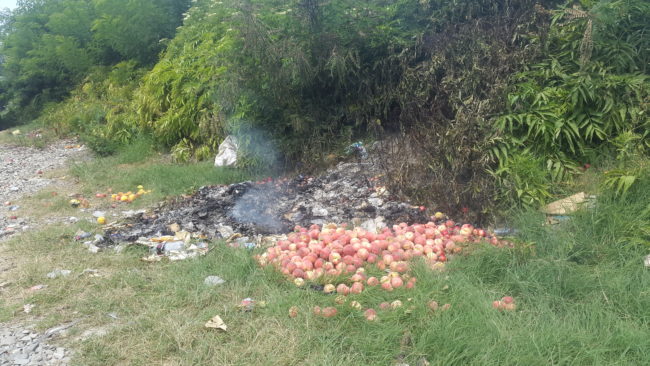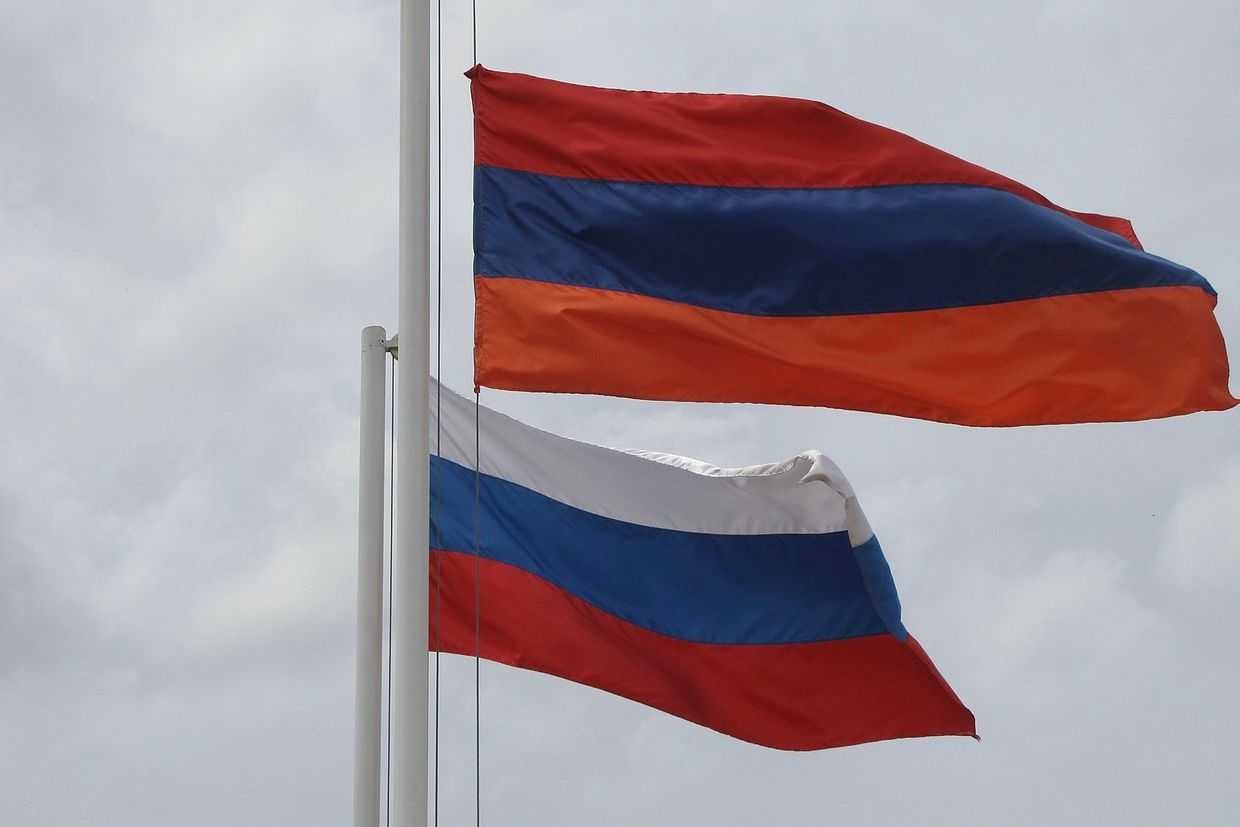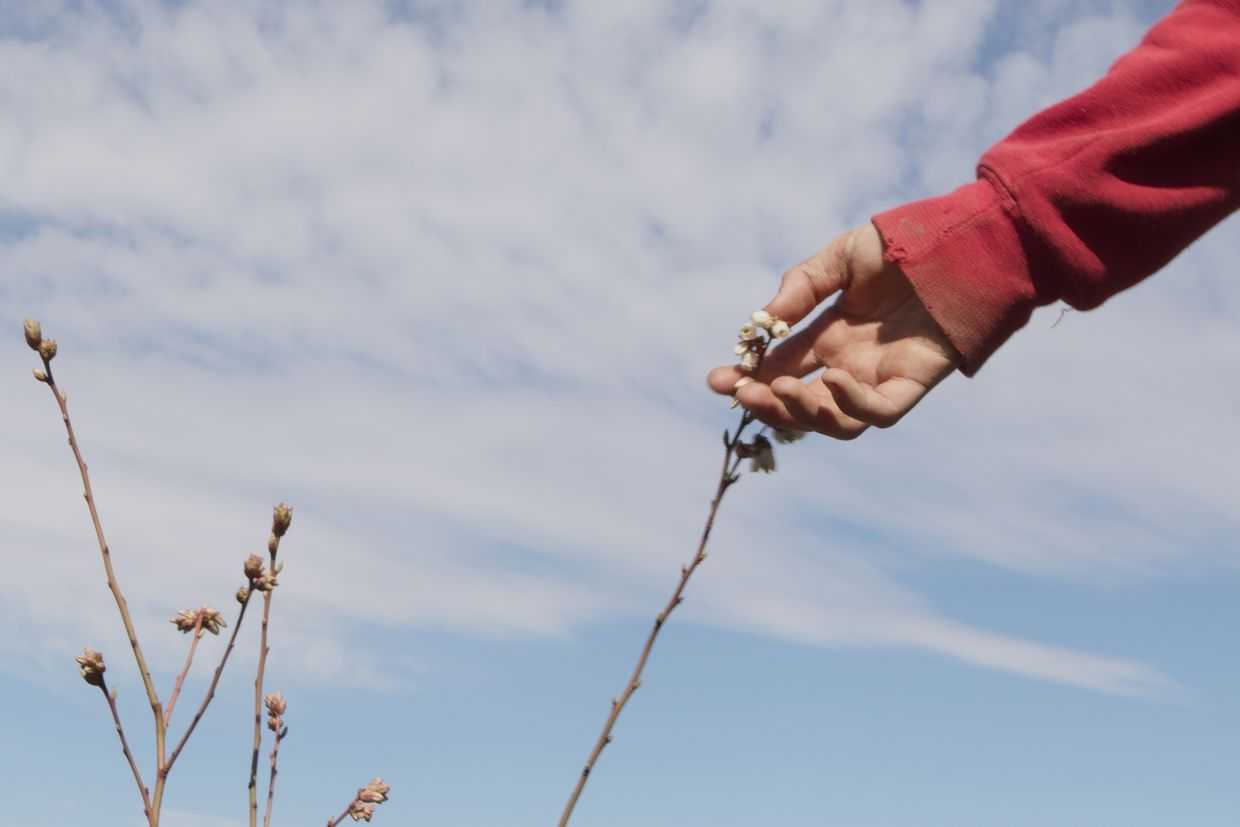
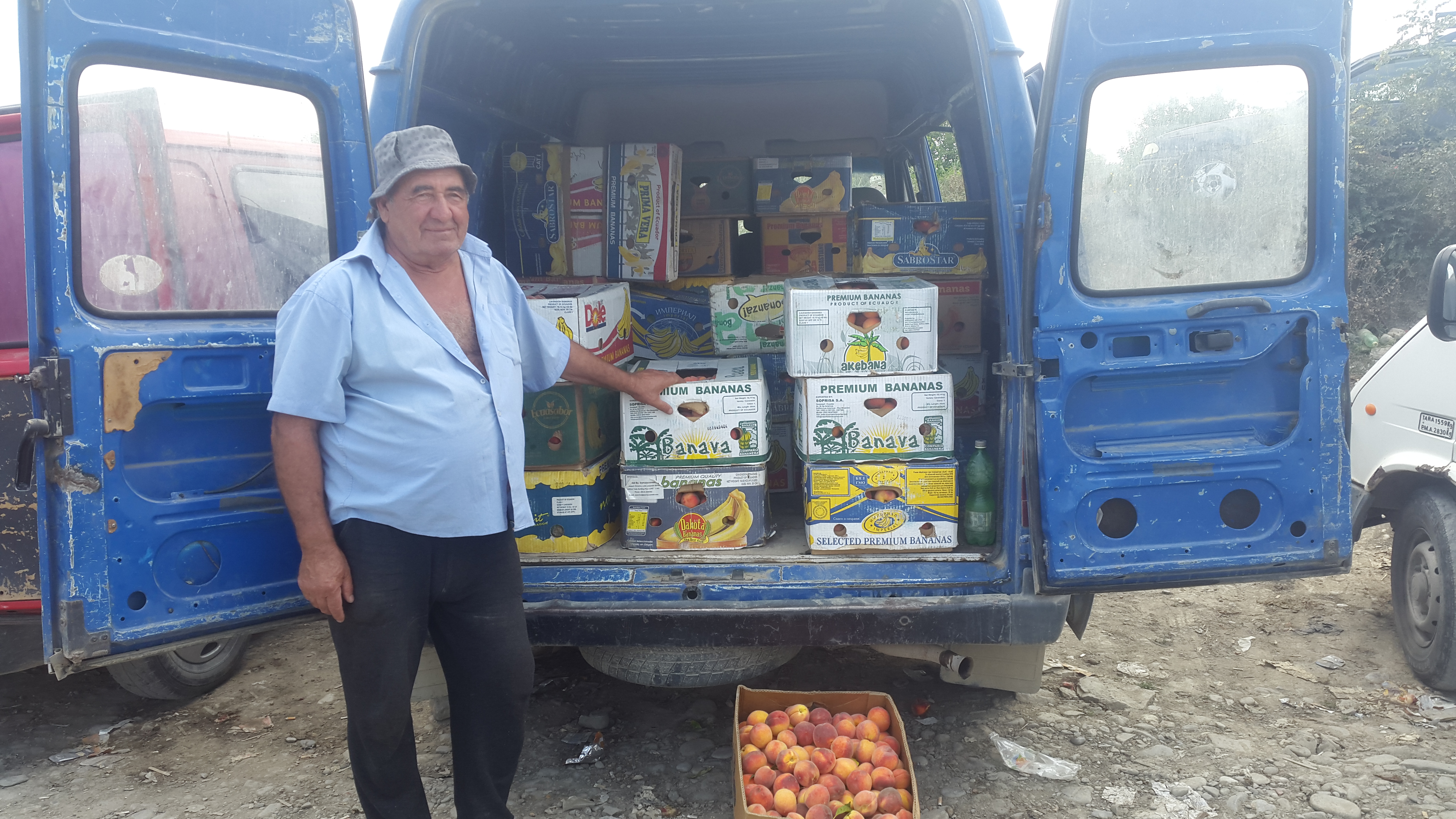
 Eastern Georgia’s Kakheti region is enjoying a bountiful harvest of peaches this summer. But far from celebrating their success, farmers say their peaches are being left to rot, and question why no one is helping them in their dire situation.
Eastern Georgia’s Kakheti region is enjoying a bountiful harvest of peaches this summer. But far from celebrating their success, farmers say their peaches are being left to rot, and question why no one is helping them in their dire situation.
Misha, a farmer from the village of Chumlaki in Georgia’s eastern Kakheti region, couldn’t sell his peach harvest this summer. He, like many other farmers, decided to distill brandy from the remaining pomace.
There was a great peach and nectarine harvest in Kakheti this year, but farmers are struggling to sell their harvests, with some deciding not to even pick them at all or to throw them in the river.
The biggest problem was selling nectarines, as the harvest was so bountiful creating an excess of supply, while the prices were low. Another problem, farmers say, is that buyers from Azerbaijan, who usually purchase a large portion of Georgia’s harvest, came too late. Some of them claim they had problems on the border with customs officials.
A new juice plant
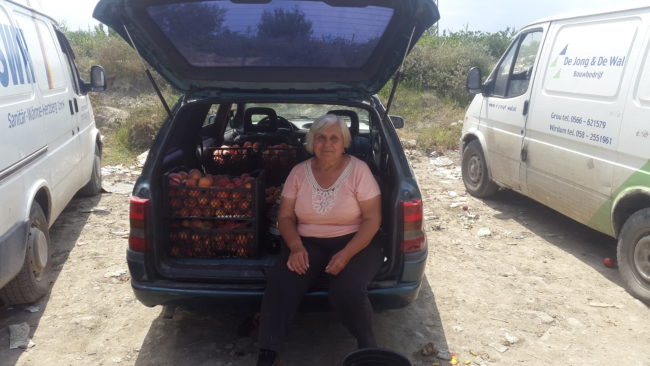
Gela Khanishvili, Georgia’s Deputy Agriculture Minister, told OC Media there was a problem with exporters this year, but not those from Azerbaijan. He said there was an issue at the Russian border, after Russia increased import duties, but that these were resolved as a result of negotiations.
Farmers still complain the government has not taken steps to help them sell their harvest.
Misha says he never had such problems during the previous government, but there have always been complications in recent years.
Officials visited Kakheti in June with the Georgian company Kula, which produces juices, compotes, and other fruit products. They met with farmers promising that there would be no problems selling their harvests this year, as a new plant would soon be opened in Kakheti which would buy peaches and nectarines and solve all their issues.
However the plant is still not online, and farmers have not been able to sell their harvest to Kula. The ministry explained this was because crucial equipment arrived too late.
Kula’s director Vano Goglidze said at a meeting with farmers on 30 June that the company would buy around 500 tonnes of peaches this year.
A spokesperson for Kula told OC Media they are still buying peaches and nectarines, but cannot say how much the company will purchase in total.
‘We already took 317 tonnes. The prices are due to the quality. Our company pays ₾0.3 ($0.13) [per kilogramme] for the best quality’, the spokesperson said.
Rotting in their boxes
Kemashvili, after failing to sell his peaches, did not even recoup the money he had invested in them, and has now decided to give up peach farming.
After harvesting his crop and storing it, they began to rot in their boxes, which he says are worth more than the peaches themselves. He is disposing of the peaches in order to at least save the boxes.
‘I am considering cutting the peach trees down and creating a vineyard. At least [grapes] don’t spoil so easily. I wasn’t able to earn even half of what I invested. This is a disaster’, he says, adding that he is trying to sell what he has cheaply, but even still, no one is buying.
‘Nectarines cost ₾0.3–0.4 ($0.13–0.17) [per kilogramme], peaches ₾0.7 ($0.29). This is the minimum price I need in order to at least earn back what I invested, but people don’t buy it and it rots’, he tells OC Media.
He left part of his harvest on the trees because he cannot pay workers to pick them.
‘I tell everyone, I even posted on Facebook, asking people to come and pick them for free so they didn’t rot. I feel very sad that they have to rot on the trees’, Ucha remarks.
Khanishvili tells us the Agriculture Ministry urged farmers to establish cooperatives and sell peaches together, but that they failed to do so.
‘The government amended the law in 2013 so farmers could unite and achieve success together,’ he says adding that farmers hadn’t used this opportunity, even though the government assures them that cooperatives will reduce their costs and will broaden their possibilities.
Farmer Levan Kirvalidze says he sold his harvest for ₾0.15 ($0.06) [per kilogramme] even though this was at a loss.
‘I don’t even think it’s possible to even think of becoming rich in the agricultural sector. The possibility doesn’t exist’, he says.
A peach market
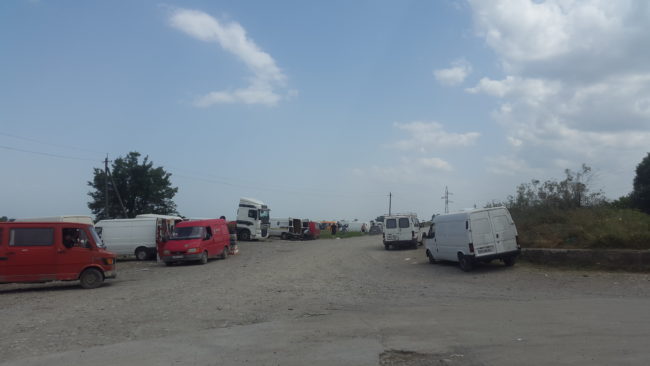
In the village of Kitaani, farmers organised a peach market where clients come from different regions of Georgia and from neighbouring countries.
Imeda Katamadze came from Adjara to bring peaches to Batumi and resell them there. He says he comes every year and thinks the problem this year occurred because of the great harvest, not because of a lack of clients.
He says what’s important is how farmers sell their peaches, and that they should be transported in fridges.
‘Otherwise the whole load may spoil before I transport it to Batumi. I should protect myself as well. I carefully pick peaches before buying them’, he told OC Media.
‘They only remember us during the election period…’
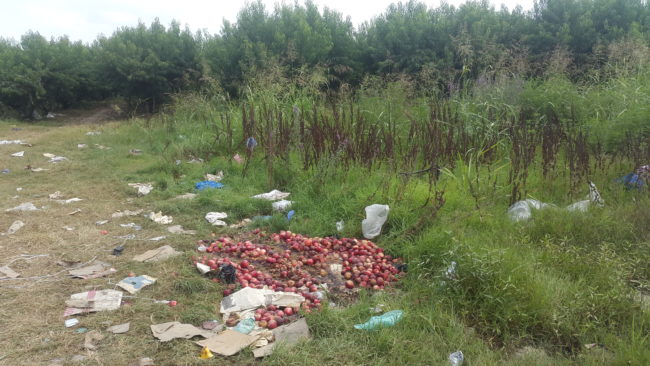
Bondo Maisuradze, who owns several nectarine farms, is dissatisfied with the lack of attention from the government.
‘They should visit us now, to witness the real problem, to see what the situation is like. They only remember us during the election period… No one pays attention when people really suffer’, he says.
Leri Maisuradze took a loan from bank and now can’t pay it back. He may lose the house if he fails to sell his harvest.
‘I borrowed ₾6,000 ($2,500) from the bank, but I cannot pay it back. I wasn’t able to pay even part of the money. I couldn’t sell my peaches; no one is buying. I don’t know what to do’, Leri tells OC Media.
According to the Ministry of Agriculture, 6,800 tonnes of peaches have been exported this year, 55% more than by the same time last year.
According to them, the biggest importers of Georgian peaches and nectarines were Russia (78%), Azerbaijan (12%), and Armenia (4%).
